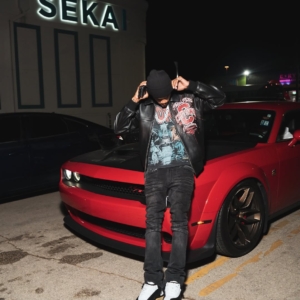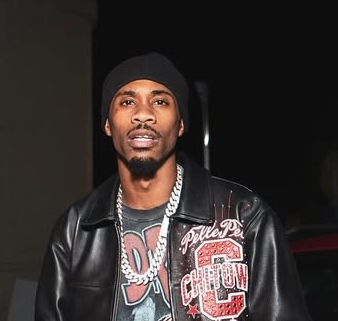FYB J Mane Explains Why Lil Durk Advised Against Returning to No Jumper

In the world of hip-hop, navigating fame isn’t as simple as dropping hits or going viral. Careers are shaped by loyalty, mentorship, strategy, and street politics—forces that often operate behind the scenes. For fans, it’s easy to see a podcast interview or viral clip and assume it’s just entertainment. But for those inside the culture, every decision carries weight, and guidance from those who’ve lived it can mean the difference between success and setbacks.
Recently, FYB J Mane sat down with Adam22 on No Jumper, offering one of the most candid insights into the intersection of street smarts and hip-hop careers. What started as a casual conversation about lifestyle choices quickly evolved into a discussion on mentorship, loyalty, and subtle strategies for survival in an industry that rewards visibility but punishes missteps.
Keeping the Mind Sharp
J Mane, known for his clarity and calculated approach, shared that he no longer smokes weed. The choice isn’t about judgment—it’s about mental clarity. As he put it, a clear mind allows him to analyze situations, recognize potential pitfalls, and make informed decisions. In hip-hop, where social media reactions can spiral out of control in minutes, mental clarity is a superpower.
“Every move you make has consequences,” J Mane said. “Not just for you, but for your community. You can’t just act on impulse. You have to think ten steps ahead.”
It was this mindset that made Lil Durk’s advice resonate so deeply. Durk, a seasoned veteran of Chicago’s music scene, didn’t tell J Mane what to do lightly. Instead, he offered a protective, experienced perspective: “Don’t go back on No Jumper.”
The Weight Behind the Advice
For those unfamiliar, No Jumper is one of the most influential platforms in hip-hop. Interviews can go viral instantly, shaping public perception and cultural narratives. But as J Mane explained, not every spotlight is safe.
Durk’s warning wasn’t about fear—it was about strategy. Social media and podcasts amplify mistakes. A poorly worded comment, a misunderstood story, or even a minor misstep can spiral into major consequences. For J Mane, respecting Durk’s guidance meant evaluating the risk, understanding the stakes, and prioritizing long-term legacy over momentary exposure.
“You can’t just chase clout,” J Mane emphasized. “Sometimes, the quiet moves protect more than the loud ones ever could.”
Loyalty and Community in Hip-Hop
The conversation also illuminated the importance of loyalty. In Chicago, hip-hop isn’t just a career—it’s a network, a culture, and a community. Relationships with mentors like Lil Durk, peers, and collaborators are intertwined with street credibility and respect.
“Durk didn’t say it to control me,” J Mane explained. “He said it to keep me safe, to make sure I’m thinking about the bigger picture. In our culture, that’s how loyalty works. It’s about guidance, not just friendship.”
J Mane also highlighted his support for other Chicago artists, emphasizing that his decisions are about protecting both himself and his community. Whether it’s business moves, collaborations, or public appearances, every choice carries implications that ripple far beyond the individual.
The Story of “Whoops”
Amid the discussion, J Mane shared insights into one of his signature projects: the “Whoops” product line. Initially a small entrepreneurial effort, it has grown into a symbol of influence and cultural relevance. Cardi B purchased it. Chance the Rapper referenced it on stage. Even Lil Durk’s mention in a song added new weight to its significance.
“Whoops isn’t just a product,” J Mane explained. “It’s credibility. Influence. People see it and know it means something. That’s why every move around it matters.”
This example underscores the layered decision-making in hip-hop. Visibility can create opportunity—but it also brings scrutiny. Durk’s guidance, combined with J Mane’s strategic thinking, ensures that exposure doesn’t come at the cost of reputation or safety.
The Role of Mentorship
One of the most compelling aspects of the interview was the way mentorship shaped decision-making. Lil Durk, with years of experience navigating fame, street politics, and media attention, provided advice rooted in observation and survival.
J Mane elaborated on how mentorship goes beyond giving instructions—it’s about perspective. “Mentors teach you how to read the room,” he said. “Not just the literal room you’re in, but the culture, the internet, the industry. Every move you make is observed and amplified.”
This advice is particularly relevant in today’s digital age, where every word, post, and appearance can be dissected and criticized in real time. By following guidance from experienced artists, emerging talent like J Mane can protect themselves and their communities while growing in influence.
Social Media, Public Perception, and Strategy
The conversation also delved into the challenges of modern social media. In an era where every interaction is public and opinions spread like wildfire, artists must balance authenticity with caution.
J Mane explained that respect and clarity are essential. “You can’t just react to the noise. You have to know when to speak and when to step back,” he said. “Durk’s advice helped me see that. It’s not about fear—it’s about survival and strategy.”
This theme resonates throughout the episode. The line between entertainment and real-life consequences has blurred, making mentorship, loyalty, and clear thinking more important than ever.
Humor, Humanity, and Hip-Hop Culture
Despite the serious lessons, the episode wasn’t devoid of humor. J Mane’s playful energy—jokes about Whoops, banter with Adam22, and light-hearted commentary—balanced the depth of the conversation.
This duality is central to hip-hop culture: blending entertainment, street intelligence, and strategy. By maintaining humor while addressing serious topics, J Mane showed that clarity, loyalty, and awareness don’t have to come at the expense of personality or culture.
Key Takeaways
The episode with FYB J Mane is more than just a podcast appearance—it’s a blueprint for navigating hip-hop culture with intelligence, loyalty, and awareness.
-
Mentorship matters: Experienced voices like Lil Durk provide perspective that can prevent costly mistakes.
-
Loyalty is intentional: Protecting your community and relationships is as important as building your brand.
-
Visibility has consequences: Not every platform or appearance is worth the risk; strategy beats clout.
-
Clarity is power: Mental focus allows artists to navigate fame, business, and street politics simultaneously.
Through this conversation, listeners gain a rare behind-the-scenes look at how artists like J Mane make decisions that shape careers, influence culture, and protect their communities—all while balancing humor, personality, and authenticity.
Conclusion
FYB J Mane’s appearance on No Jumper was more than a typical podcast interview. It was a lesson in strategy, loyalty, and the importance of mentorship in hip-hop. Lil Durk’s advice not to return to the platform wasn’t about fear or control—it was about guidance, protection, and understanding the high stakes of visibility in the music industry.
For fans and aspiring artists alike, this episode reinforces a timeless truth: success in hip-hop isn’t just about talent or fame. It’s about awareness, patience, and the wisdom to make quiet decisions that speak louder than the loudest viral moments.
👉 Stay connected with the latest updates on this story and more hip-hop news at The Urban Spotlight Homepage.









Leave a Reply
Want to join the discussion?Feel free to contribute!